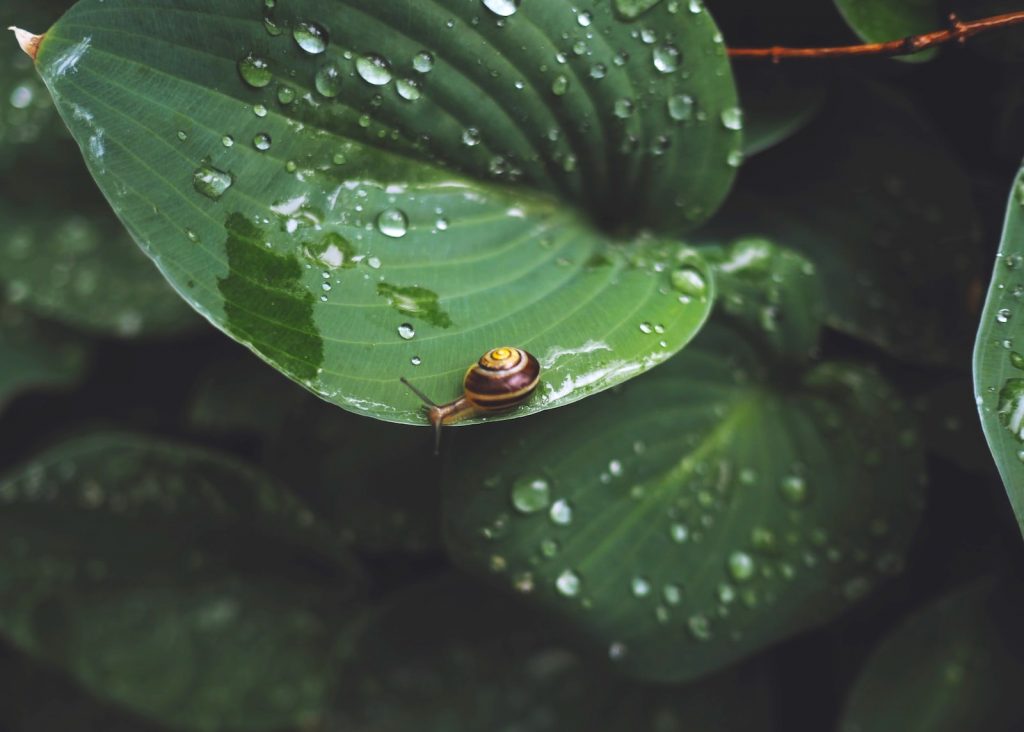Kobayashi Issa, the Japanese haiku poet from the late 1700s, may be one of the most lovable writers of all time. He attends to the lives of tiny overlooked critters, especially insects, with compassion, humor, and a brave, honest heart. I’ve been enjoying his words, his perspective, for decades now, but a quote from scholar R.H. Blyth that I recently happened upon officially sealed the deal: “Issa wrote 54 haiku on the snail, 15 on the toad, nearly 200 on frogs, about 230 on the firefly, more than 150 on the mosquito, 90 on flies, over 100 on fleas and nearly 90 on the cicada, making a total of about one thousand verses on such creatures.”
Pulling randomly from those thousand verses, here are three featuring flies (trans. Sam Hamill):
The winter fly
I caught and finally freed
the cat quickly ate
Don’t kill that poor fly!
He cowers, wringing
his hands for mercy
Now we are leaving,
the houseflies can make love
to their hearts’ desire
Some might argue that Issa’s tender, warm regard for the easily ignored—heck, easily crushed—lifeforms stems from his Buddhist faith. The first of the five precepts is to abstain from killing, and Issa was a lay priest in the True Pure Land Buddhism school (Jodo Shinshu). But another factor is the relentless parade of hard knocks he faced. Issa’s mother died when he was young. He was perpetually impoverished and sick, occasionally homeless. He was a widower and the father of three children who perished in infancy. Did all of this make him uniquely available to the myriad fragile buggies, so that he could feel for them and, in turn, receive a feeling from them? A feeling of friendship and support? A feeling of we’re-in-this-together solidarity? Perhaps it was because he was broken down that he could be lifted back up by their presence.
I’m no Issa. In fact, my life is so ridiculously charmed that I actively choose hardship, which is to say I immerse myself in the wilderness as a hobby, a discipline. Once a month, I pack a rucksack with minimal food and clothing, a thin foam pad, a threadbare sleeping bag, a cheap plastic tarp, and trudge into the mountains alone. The goal isn’t a relaxing vacation, but rather an elemental scouring, an existential adventure. Violent storms and intense vulnerability. Real raw contact with huge ancient forces.
Last week, reading Issa, I recalled a backcountry trip from my early twenties, when I was new to the challenges of going solo. Sleet fell for two days and two nights, pinning me beneath my pathetic tarp shelter. The portable camp stove ran out of fuel, the cold gnawed my bones, the wind screamed and screamed, rarely pausing to catch its breath. Towering gray peaks and ink-black spruce. November’s frozen lumpy ground. Indeed, the forces were huge and ancient.
But then, to my delight and surprise, the forces were very, very small, crawling right under my nose. “I’ve never had friends like ants before,” a journal entry from that trip declares. “Friends that show up when you’re crying and without saying anything make you smile.”
Maybe you’ve had a similar experience, a low, rotten, hopeless, isolated moment that unexpectedly swung open like a gate: Wow, how incredibly beautiful you are butterfly/chipmunk/sparrow/slug, thanks a ton for visiting, please do come again soon, thank you, thank you, thank you. When we are humbled, not Lord Man On His Throne but Dinky Hairless Ape Lost In The Woods, we can begin to notice and appreciate that which has been routinely neglected. A spider weaving its web across the hollow of your boot can be a savior. A silly mouse that clumsily steals your dinner’s crumbs can be a relief valve on the pressure cooker of the self. A warbler warbling in the thicket can sing through your entire being.
Of course, this opening of awareness and gratitude isn’t dependent on the physical mountains. Skyscraper canyons of the megalopolis. Green lawns of suburbia. Gas station parking lots. Freeways. These are the daily wildernesses where our lives take shape and lose shape and regain shape. I’m tempted to refer to them as Issa Wilds, each an invitation to connect and expand.
In the book A Zen Wave, Roshi Robert Aitken celebrates Issa’s predecessor, the haiku master Matsuo Basho, by contrasting him with a different character type: “It is possible to train yourself to be dull. Don’t pay attention to things. Preoccupy yourself with brooding. The dull person is one who has practiced not noticing closely.” We can train ourselves to be dull, absolutely, and that’s a big problem. But what I want to emphasize is that in doing so we are simultaneously training ourselves to be sad—or at least sadder than necessary. Issa may have been a sad, sad, sad guy, yet his poems of “attention to things” and “noticing closely” are affirmations of the world. It’s this capacity to affirm, not despite the hard knocks but because of them, that makes him such a lovable writer.
Take care in the grass—
don’t wipe out those pearls of dew,
little cricket!
This haiku (trans. Hamill) implies that a pearl of dew is itself another kind of tiny overlooked critter, easily ignored and easily crushed. In doing so, it illustrates where Issa’s lifelong work—call it Buddhist, call it literary, call it both—ultimately leads. For him, the realm of sympathy and concern is limitless. Every detail matters. Every detail deserves 17 syllables. One thousand verses on “such creatures” is just a start.
Thank you for subscribing to Tricycle! As a nonprofit, we depend on readers like you to keep Buddhist teachings and practices widely available.
